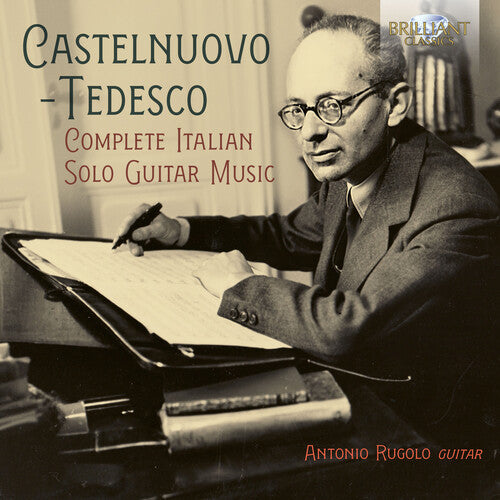Sale 10% Off Your First Order
Sale 10% Off Your First Order
Movies & TV
Toys & Collectibles
- Home
- Antonio Rugolo - Complete Italian Solo Guitar (CD)
Description
Details: The guitar became increasingly important to Castelnuovo-Tedesco through the course of his long career. 'My art tends progressively to simplify itself,' he wrote, 'and the guitar has become one of my favorite means of expression because it has led me towards the essential.' He was first drawn to the instrument after meeting Andres Segovia in Venice in 1932. The Variations á travers les siècles Op.71 followed almost immediately. Over the course of the next seven years, Castelnuovo-Tedesco produced a string of equally successful pieces for the instrument. Most substantial is the four movement Guitar Sonata subtitled as a 'Homage to Boccherini': an elegant essay in neoclassicism which evokes the courtly elegance of Boccherini's Guitar Quintets while sounding entirely true to Castelnuovo-Tedesco's own language. There followed a Capriccio Diabolico, which lives up to it's title as a homage to Paganini with fiendish figuration which delighted Segovia. Sharing the Capriccio's Opus number of 87 is a contrastingly restrained character-study of Sicilian flavor, 'Oranges in Bloom'. The last guitar piece written by Castelnuovo-Tedesco before leaving Europe for good was the Variations plaisantes sur un petit air populaire Op.95, which takes it's theme from a French folk melody after a Swiss critic had taken aim at the Sonata as merely a display piece for Segovia. Castelnuovo-Tedesco proved him wrong with another demonstration of his deep feeling for the guitar as an instrument of both display and reflection, ending with an elaborate fugue. This album is the latest in a series of new recordings documenting the output of Castenuovo-Tedesco. Rather than playing from the standard editions of these pieces by Segovia, Antonio Rugolo has gone back to the composer's manuscripts as well as consulting newer editions by Angelo Gilardino, resulting in performances which are truer to the composer's vision than ever before.
Related Products
You May Also Like
-
$10.99 $13.99
Recently Viewed Products
Related Products
Recently viewed products
Shopping cart
close
-
WHAT ARE YOU LOOKING FOR?Search
- Home
- Movies & TV
- Music
- Toys & Collectibles
- Video Games
- Books
- Electronics
- About us
- Castle Chronicles
- Contact us
- Login / Register




